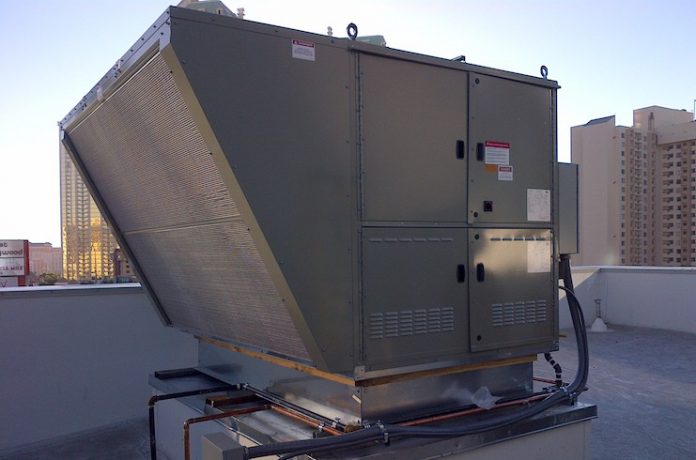
With the holiday season quickly approaching, hotels will soon be bustling with guests looking to visit family and friends. With increasing capacity levels, comfort is a high priority. Mechanical HVAC systems play a large part in creating memorable customer experiences, so it is vital for facility managers to ensure systems are ready for change.
HVAC units not only determine the temperature of a building but also play a factor in indoor air quality. Preventative measures, upgrades, and a maintenance plan will go a long way in ensuring commercial HVAC units are prepared for the changing season.
Simple Preventative Measures
When it comes to maintenance, there are little things that can be done to optimize capability. Start with the basics. Replacing filters in commercial HVAC units is one of the simplest and most effective actions that can ensure a system is running at optimal levels. This is a critical part of any maintenance schedule.
Building owners are moving toward more efficient filters to be part of their strategy to improve indoor air quality (IAQ) for guests. Naturally, the filters will capture more particles and contaminants, requiring replacement more often. Anything that interrupts proper airflow (like dirty filters) will cause HVAC units to work harder and may reduce energy efficiency in the process. Long-term neglect will put more strain on the unit and increase the chances of a breakdown or shorten the life of the equipment. Often, neglected items on gas-fired heating equipment include checking and setting gas pressure, inspecting venting systems, and cleaning condensate lines.
It is important for facility managers to make sure the thermostat and other set points on the HVAC unit have been adjusted to accommodate the temperature change. If the thermostat is not properly set to account for the winter months, the heated space could become uncomfortable and potentially reduce efficiency. Using a smart thermostat is a great way to cut back on energy usage and will ensure settings will be adjusted automatically as the system learns the patterns.
Many of these steps can be guaranteed by scheduling regular inspections using checklists. Routine inspections and cleaning help managers make sure all mechanical and electrical components, belts, and coils are operating as they should. Documenting these findings is important. These inspections will highlight any glaring problems with the hotel’s HVAC unit and present proper ways to fix the issue.
Maintaining IAQ
Maintaining optimal IAQ inside a hotel is important for the guests’ comfort and health. If a hotel uses mechanical HVAC equipment, there are three areas to emphasize to improve IAQ: controlled ventilation, dehumidification, and filtration. Each area plays a major role in eliminating pathogens, decreasing organic growth, and providing clean air to hotel guests.
Controlled ventilation is critical for achieving targeted ventilation rates to pull appropriate outdoor air into interior spaces. The air located outdoors tends to be cleaner than the air inside. Mechanical HVAC units allow facility managers to control the ventilation rate to maximize the rate at which outside air is being brought indoors. This will leave hotel guests breathing much easier.
HVAC equipment with dehumidification capabilities is key to handling the latent loads that can be associated with outdoor air. Relative humidity needs to be controlled to provide comfort and decrease organic growth within the hotel. It’s important to maintain a relative humidity level of 30 to 60 percent to reduce the chances of mold and other organic growth. Maintaining these levels will keep the air from feeling too sticky or too dry for guests.
Proper filtration is needed for occupied spaces because it pertains to the process of eliminating particles from the air that could be harmful or dangerous. With hotels increasing occupancy during the holiday season, it will be vital for HVAC filtration systems to be on point.
Develop a Maintenance Plan
A combination of maintenance and proper temperature setpoints creates an environment that keeps HVAC systems operating at optimum levels. Without one of the two, maintaining a system that is efficient is less probable. Hotel managers need to create a maintenance plan to ensure leaders keep HVAC inspections a priority. A major breakdown would not only be costly, but it would decrease IAQ levels and the customer’s comfortability. Maintaining the recommended maintenance schedule will enable the HVAC system to operate at peak levels and improve efficiency and cost savings.











